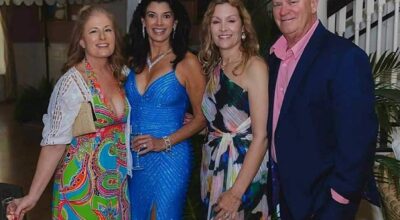Called by a scammer
Published 10:47 am Saturday, June 11, 2022
|
Getting your Trinity Audio player ready...
|
A few weeks ago, I received a disturbing voice mail message. The recorded announcement claimed that permission to place a call via my phone was needed by someone who was being held at a correctional facility.
My first reaction was panic. I didn’t know anyone in a correctional facility. At least I hoped not. I mentally ran through a list of people who could possibly resort to my phone number in an emergency. None seemed likely to be incarcerated, but I could envision a few who might have participated in a protest against social ills. My imagination also supplied an assortment of unlikely scenarios in which the justice system was, at least temporarily, knocked off the rails.
I started making phone calls. One by one, I asked friends and family, “Are you okay?” They were. I interrupted two people at work. Fortunately, they and their employers were gracious. I was very lucky that my phone calls all resulted in immediate connections. I might have tipped into hysteria if anyone had been unavailable. My hands were still shaking. My people were all okay, but somewhere out there, I thought someone was in trouble, and in their distress, they had mistakenly dialed my number. I wondered what I should do.
When my mind settled, I replayed the message in my memory. I began to think it odd that the correctional facility wasn’t named. Neither was the jurisdiction. The inmate wasn’t named either. Perhaps belatedly, my suspicions began to be aroused.
I typed the originating phone number into an internet search engine and found ample warnings proclaiming it to be a scam. Apparently, if I’d answered my phone (instead of having it go to voice mail) and followed the prerecorded instructions I would have inadvertently activated a call-forwarding service. The scammer would have been able to charge calls to my phone number, even international calls or calls to numbers that charge a fee for connecting.
I also learned that another related scam announces that an inmate is trying to make a collect call. If you press any button, even to choose the language you wish to use, the call can be rerouted to a fee-gathering connection. This type of scam is especially problematic because it follows the pattern that must be used by incarcerated people who wish to call friends and relatives. If you know someone in a correctional facility, it can be extremely difficult to protect yourself.
Until I started looking into the topic, I did not know that correctional facilities use specialized companies to provide basic phone service to inmates. Apparently costs to callers and their families can be exceptionally high. As it turns out, there are scams that attempt to sell fake calling plans to prisoners and their loved ones.
It seems that scammers are skilled at creating and taking advantage of emotional turmoil. They tell you that a loved one is experiencing an emergency. Suffered a car accident. Been the victim of violent crime. Lost a wallet. Some make threats regarding impending governmental action. They’ll claim the police are coming to arrest you. Or, on the other end of the emotional spectrum, some scammers attempt to get you to drop your guard by stirring up happy feelings. They’ll claim you’ve won some prize or offer you a valued job.
Since my experience, I’ve been on higher alert against scams. I’d like to pass along some tips from the U.S. Federal Trade Commission:
Do not trust the number or name that appear on your phone’s caller ID. Scammers frequently pretend to represent real agencies, such as the Social Security Administration, the Internal Revenue Service, a utility company, or even a trusted charity. If you are concerned that there may be a legitimate issue, independently look up published contact information, and initiate a call yourself.
Do not yield to pressure to act immediately. Scammers don’t want you to think before acting.
Do not respond to requests to use gift cards or codes from gift cards for payment. Do not wire money to anyone you don’t personally know. Do not cash unexpected checks or checks that include an overpayment.
And, finally, report fraud through the FTC’s website at reportfraud.ftc.gov.
KAREN BELLENIR has been writing for The Farmville Herald since 2009. Her book, Happy to Be Here: A Transplant Takes Root in Farmville, Virginia features a compilation of her columns. It is available from PierPress.com. You can contact Karen at kbellenir@PierPress.com.





